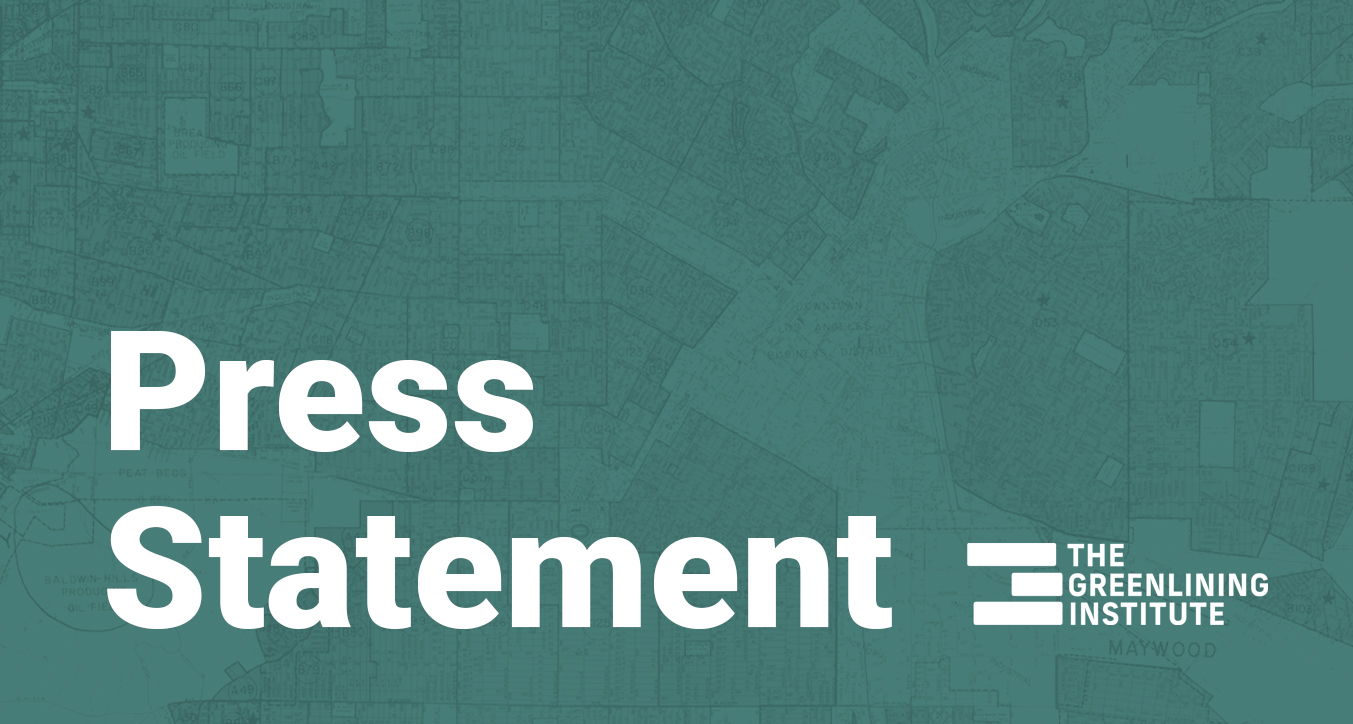Barrett will destroy the Affordable Care Act

Media Contact
Danielle Bell
SENIOR PROGRAM MANAGER FOR MEDIA RELATIONS
media@greenlining.org danielle.bell@greenlining.orgBy Kelsey Lyles
The Progressive
If Republican senators steamroll Amy Coney Barrett onto the Supreme Court, she could become the crucial fifth vote to overturn the Affordable Care Act, sometimes called Obamacare. That represents a serious threat to families of color.
This isn’t a theoretical discussion. The Supreme Court is slated to hear oral arguments on the Trump administration’s latest attempt to overturn the ACA on Nov. 10, exactly one week after the presidential election. Barrett could be a justice by then.
The Trump team’s latest effort to kill the health care law turns on its penalty for not having insurance, which the 2017 GOP tax bill cut to zero. We don’t know exactly how Barrett would rule, but she strongly criticized Chief Justice John Roberts’ ruling in a prior case upholding the ACA, which involved the same provision.
Barrett has also criticized the ACA’s requirement of coverage for contraception, calling it an “assault on religious liberty and the rights of conscience.”
Ruling against the ACA would end the health care of millions of Americans. And that burden would fall disproportionately on Americans of color, who had the highest uninsured rates prior to the law’s passage and made the biggest gains under its provisions.
The ACA, while not perfect, has reduced barriers to eligibility and enrollment for low- and moderate-income families. It prohibits insurance providers from charging a patient more due to their risk profile, bans providers from refusing to serve patients with preexisting conditions, and allows young adults to remain on their family’s insurance until age 26.
All of these provisions, the Trump administration argues, should be eliminated if the Supreme Court rules in its favor. Solicitor General Noel Francisco, in a brief filed with the court, said the ACA’s other provisions cannot be separated from the individual mandate and that “it necessarily follows that the rest of the ACA must also fall.”
In 2010, according to a report published earlier this year by the Kaiser Family Foundation, 13.1% of white Americans lacked health insurance, the lowest rate of any racial or ethnic group. Asian Americans were next lowest at 16.7%. The uninsured rate for Black Americans hovered just under 20%, while nearly one-third of Latinx and Indigenous people lacked insurance.
Those numbers dropped dramatically for all groups after the ACA took effect, and the racial gaps narrowed substantially. By 2016, the uninsured rate for Latinx had plunged more than 13 percentage points, while the rate for Black and Asian Americans dropped by nearly half.
Distressingly, those gains pretty much stopped after the Trump administration began chipping away at the ACA — for example, by cutting funding and outreach for enrollment. Tossing out the ACA completely would obliterate coverage for millions of Americans, in the middle of a pandemic.
COVID-19 has already left some eight million Americans with a preexisting condition – making it nearly impossible for them to get affordable health insurance without the ACA’s protections. During her confirmation hearing, Barrett tried to talk her way around the preexisting conditions issue in a way that did not inspire trust.
Barrett disingenuously claimed that the issue before the court was “not a challenge to pre-existing conditions coverage or to the lifetime maximum relief remote cap.” In fact, as Francisco made clear, it is exactly that.
But those COVID-19 infections are disproportionately hitting communities of color. In August, the CDC reported that the COVID-19 case rate for Black Americans was 2.6 times higher than for whites, while for Latinx and Indigenous Americans it was 2.8 times higher. That’s millions of people who are potentially about to have their health care safety net taken away.
For Americans of color, Amy Coney Barrett is not just another judicial nominee, but a direct and potentially lethal threat. Let your senators know what you think by calling the U.S. Capitol Switchboard at (202) 224-3121.
This column was produced for the Progressive Media Project, which is run by The Progressive magazine, and distributed by Tribune News Service.



